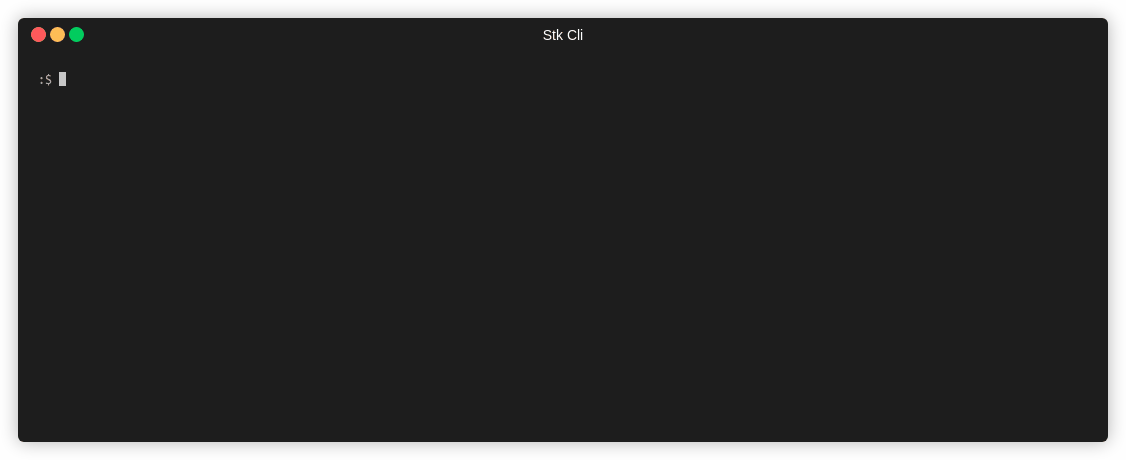Description
The stk-legacy create stackfile command creates a base file of a stackfile in the current directory.
How does it work?
The command creates a base file for you to use when developing a Stackfile. When executed, a <name-stackfile>.yaml file will be created and you must edit it to define the Stack Template and Plugins composition.
Parameter
Check the available options in the command:
| Parameter | Description |
|---|---|
NAME | Defines the stackfile name. |
--description | Stackfile's description. |
Example
See an example of how to create the Stackfile file:
- Run in your terminal:
stk-legacy create stackfile name-of-your-stackfile
- Enter the description of your Stackfile:
? Description: Describe your stackfile here
- The return will be:
- Stackfile name-of-your-stackfile successfully created.
- The file
your-stackfile.yamlwill be created in the current directory:
type: app
description: Describe your stackfile explaining its purpose
template: <stack-name>/<template-name>
plugins:
- plugin: <stack-name>/<plugin-name>
inputs:
some_input: value
Attributes:
- type: Indicates if the Stackfile can be used in a
stk-legacy create appcommand. - description: Stackfile description that will be displayed in the command
stk-legacy list stackfile. - template: Template to use to create the app in the
name-stack/name-templateformat. - inputs: Objects with the values of the inputs that will be passed to the Template. They are not required. If any input value defined in the Template is not entered, the user will be prompted for it.
- plugins: List of objects that indicate which Plugins are to be applied.
- plugin: Plugin to be applied in
name-stack/nome-pluginformat. - inputs: Objects with the values of the inputs that will be passed to the plugin. They are not required. If any input value defined in the template is not entered, the user will be prompted for it.
info
If you update the Template and/or Plugin used in the Stackfile, it is not necessary to delete and create a Stackfile again. The updates are loaded automatically, as long as the Template and Plugin keep the same name that you used before.
Command execution example

Read more
Was this page helpful?